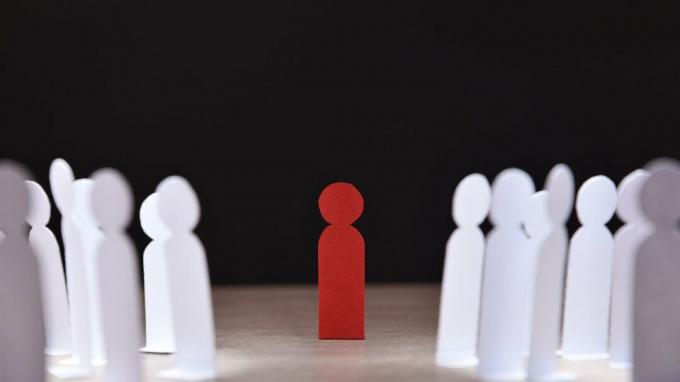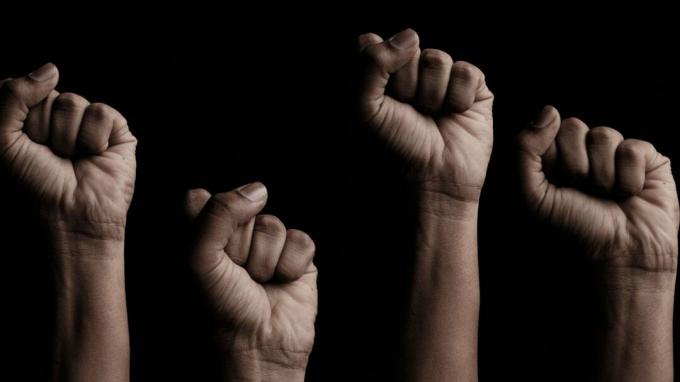Social stigma: how can we end it?
Social stigmas are widely present in our societies and affect many people and groups in different contexts.. Social stigma refers to the negative or stereotyped labeling that is assigned to an individual or group due to specific characteristics, such as their physical appearance, health condition, sexual orientation, race, gender, religion or any other aspect that may be subject to discrimination. These labels create social exclusion and often lead to unfair treatment or discrimination by others.
Social stigma not only has an emotional and psychological impact on those affected, but can also limit their opportunities in everyday life. It can make it difficult for you to access education, employment, housing, and proper health care. Additionally, social stigma can lead to social isolation, low self-esteem, and a lack of self-confidence.
As we move towards a more inclusive and respectful society, it is critical to address and combat social stigma.. In this article, we will explore the different causes and consequences of social stigma, as well as strategies to break stigmas and promote a more just and equitable society.
- We recommend you read: "Transphobia: discrimination against gender diversity"
What is social stigma?
As we have commented, social stigma refers to the attribution of negative characteristics to an individual or group based on certain traits or identities that are considered socially unacceptable or undesirable. These stigmatizing labels can be based on physical, emotional, psychological or social aspects and can lead to their social exclusion or isolation.
A fundamental characteristic of social stigma is that it is not limited only to the perception individual, but is also embedded in social norms and structures of can. Social stigmas are built through processes of socialization, stereotyping, and discrimination, thus perpetuating inequalities and prejudices in society.
Stigmas can manifest in different ways. Some common examples include the stigma attached to mental illness, where people who suffering from psychological disorders are stigmatized and face fear, marginalization and exclusion. Another example is stigma related to sexual orientation, where LGBTQ+ people may face discrimination and rejection due to their gender identity or sexual preferences. Additionally, stigma may be related to physical characteristics, such as obesity, visible disabilities, or distinctive body markings.

Consequences of social stigma
Social stigma can have significant repercussions on the lives of those who experience it.. These consequences can manifest in different aspects, from psychological well-being to educational and employment opportunities. Next, we will explore some of the main consequences of social stigma.
1. Effects on mental health
First, social stigma can affect the mental and emotional health of stigmatized people. The burden of being negatively labeled and stereotyped can lead to stress, anxiety, depression, and low self-esteem. People facing social stigma may feel pressured to hide their true identity or live in constant fear of being judged and rejected.
2. Educational and employment opportunities
In addition to the effects on mental health, social stigma can limit educational and employment opportunities. Stigmatized people may face difficulties accessing quality education or finding stable employment and satisfactory when facing the rejection of this sector of society. Negative stereotypes can lead to discrimination in the workplace, resulting in exclusion and a lack of equal opportunities.
3. Interpersonal and social relationships
Social stigma can also impact interpersonal and social relationships. Stigmatized people may experience exclusion and rejection by others, leading to social isolation and difficulty making meaningful connections. This can affect your quality of life and general well-being.
4. Citizen participation
In addition, social stigma can have consequences on citizen participation and the search for adequate health services. Stigmatized people may avoid seeking medical or psychological help due to fear of stigma and discriminatory treatment. This can result in poor access to healthcare and a lack of appropriate treatment for your needs..
Origins and causes of social stigma
Social stigma has deep roots in our society and history, and can have a variety of causes and origins. Understanding these factors is critical to effectively addressing and combating stigma. We are going to present some of the most common causes of social stigmas:
1. Lack of understanding and knowledge:
Social stigma often stems from a lack of understanding and knowledge about certain characteristics or groups of people. Stereotypes and prejudices are based on wrong assumptions and negative generalizations that can lead to stigma.
2. Fear of the unknown:
Fear and discomfort towards the unknown can also be causes of social stigma. People tend to stigmatize what is different to them or what makes them afraid. This can lead to discrimination and the creation of social barriers.
3. Influence of social and cultural norms:
Social and cultural norms play an important role in the formation and perpetuation of social stigma. Ingrained attitudes and beliefs in a certain culture can lead to the stigmatization of certain groups or characteristics.
4. Effect of the media:
The media can also contribute to the creation and perpetuation of social stigma. Negative or stereotyped representation of certain groups in the media can influence how they are perceived by society at large, thus fueling stigma.

Breaking the social stigma
In order to break social stigma and promote a more inclusive society, it is necessary to adopt strategies and approaches that foster positive change. Some key strategies to combat social stigma can be:
1. Education and awareness:
Education is essential to challenge entrenched stereotypes and prejudices. It is necessary to promote inclusive education and offer programs that address social stigma in schools and communities. Raising awareness through information campaigns and testimonials from people affected by stigma can help break down barriers and promote understanding.
2. Promotion of empathy:
Fostering empathy is essential to breaking social stigma. It is important to promote the ability to put yourself in another's shoes and understand their unique experiences.. This can be achieved through personal storytelling, open dialogue, and fostering diversity and inclusion in all areas of society.
3. Fight against discrimination:
It is essential to implement policies and laws that prohibit discrimination based on stigmatized characteristics or identities. This includes ensuring equal opportunity in employment, education, housing, and health care. In addition, effective mechanisms must be established to address complaints of discrimination and guarantee justice and respect for human rights.
4. Support and empowerment:
Providing support and empowerment to people who suffer from social stigma is crucial. Programs and services should be developed that promote mental health, emotional well-being and the development of skills to face and overcome stigma. Likewise, safe and discrimination-free spaces must be created where people can share their experiences and find mutual support.
5. Active participation of society:
All members of society have an important role in fighting social stigma. It is critical that each individual examine their own biases, privileges, and stereotypes, and actively work to eliminate them. Participation in community initiatives, supporting organizations that fight against stigma and advocating for equality and inclusion are key actions to generate positive change.

The only solution is to break the stigma
In our current society, social stigma continues to be a barrier that prevents equality, inclusion and respect for diversity.. However, it is a challenge that we can overcome through education, awareness and the promotion of empathy. It is essential to recognize that social stigma affects not only those directly stigmatized, but also harms society as a whole. When a person or group is excluded due to stigma, we lose the opportunity to learn, grow and develop as a community.
To break social stigma, we must challenge entrenched biases, challenge social norms, and foster a culture of respect and acceptance. This involves facing our own biases, listening and learning from the experiences of others. those who are stigmatized and take concrete measures to combat discrimination in all its shapes.
By working together to overcome social stigma, we can build a more inclusive society, where each individual is valued and respected for their uniqueness. It is a process that requires effort and commitment, but the result will be a fairer and more equitable society for all. We all have a responsibility to challenge social stigma and promote positive change in our communities.. Let us remember that our differences do not define us, but rather enrich our society and make us stronger. Let's break the stigmas and build a world where equality and respect are the norm.


